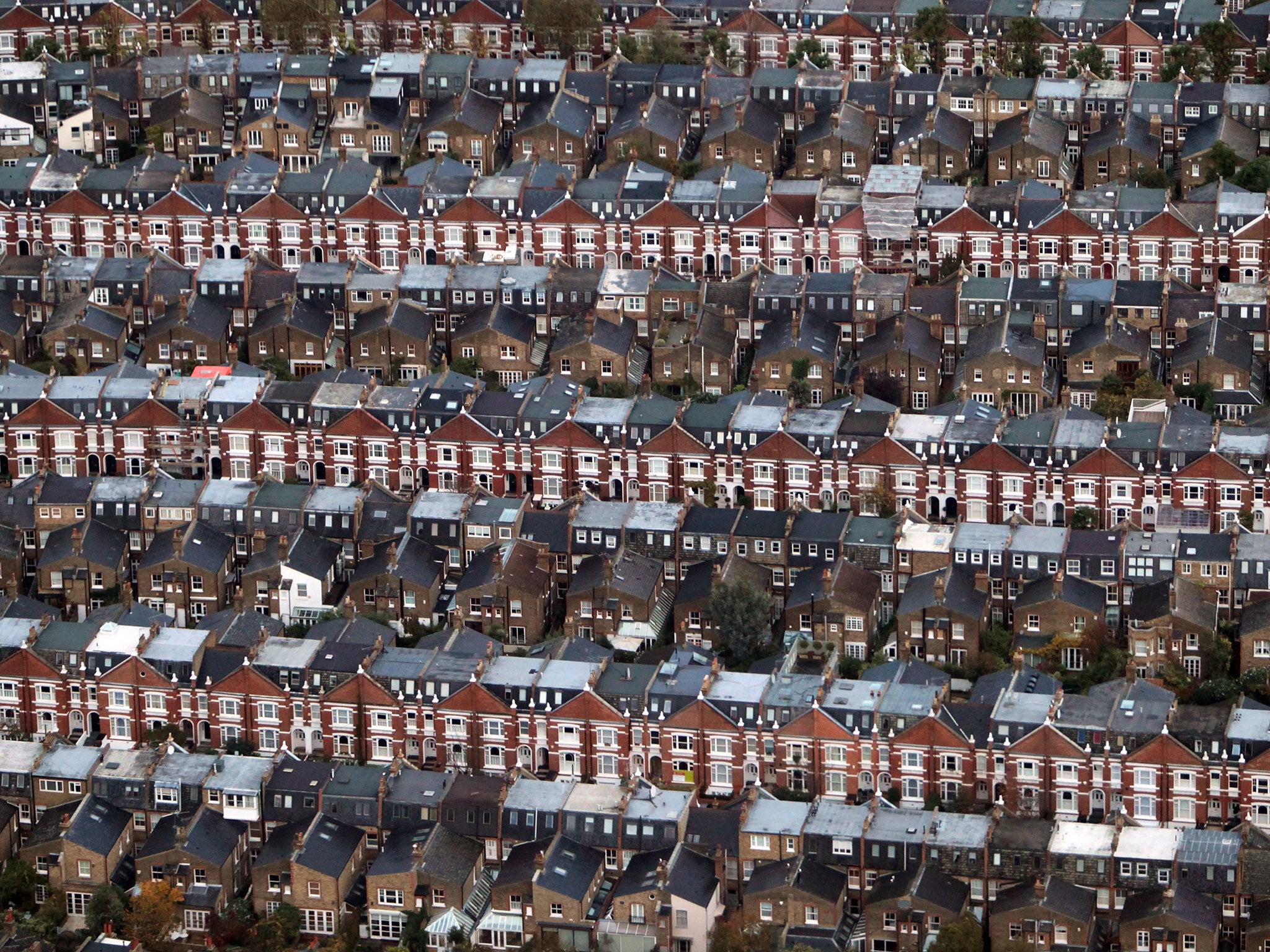Your support helps us to tell the story
From reproductive rights to climate change to Big Tech, The Independent is on the ground when the story is developing. Whether it's investigating the financials of Elon Musk's pro-Trump PAC or producing our latest documentary, 'The A Word', which shines a light on the American women fighting for reproductive rights, we know how important it is to parse out the facts from the messaging.
At such a critical moment in US history, we need reporters on the ground. Your donation allows us to keep sending journalists to speak to both sides of the story.
The Independent is trusted by Americans across the entire political spectrum. And unlike many other quality news outlets, we choose not to lock Americans out of our reporting and analysis with paywalls. We believe quality journalism should be available to everyone, paid for by those who can afford it.
Your support makes all the difference.Three quarters of the British agree we have a housing crisis. More people than ever mention housing as a national problem – we have polled people every month since 1974 and mentions of housing are now the highest Ipsos MORI has ever recorded: more people cite it as an issue than the EU, inequality, poverty or crime. The vast majority of Britons still aspire to own their own home, but most renters now say they will never be able to afford to.
Support for housebuilding is rising. As recently as 2010, more people were opposed to new homes being built in their local area than in favour. By last year this had reversed: 56 per cent now say they support more homes in their area, and only 21 per cent are now opposed. In the same vein, when you ask the public whether the government should borrow to build more affordable housing, the majority say yes (54 per cent) – only 20 per cent disagree, with another 26 per cent unsure. Of course if you told people that taxes might need to rise, or there would need to be extra cuts to public services or benefits to make this happen, then support might decline, but nevertheless, if you offer the public a list of different types of infrastructure investment choices– including airports, roads, railways, bridges – they choose housing ahead of anything else.
And yet, despite this level of concern, housing was not key at the election. When we asked, fewer than one voter in ten said it would determine how they voted, and in any case, the young, who are most likely to see it as a problem, generally didn’t vote in May. Only 43 per cent of under-24s voted, compared to 78 per cent of the better housed over 70s.
Why isn’t it more of a decisive issue? There are four main reasons. Firstly, because Millennials are much less likely to seek collective solutions to their problem – they are much more individualist. They don’t automatically look to HM Government to “do something” in the same way my Baby Boomer generation does. Secondly, responsibility for the problem is not clear. Ask people exactlywhat the issue is and many more say the issue is simply that prices are too high (38%), than say there is actually a shortage of affordable housing (28 per cent). Thirdly, the fact that most housing isprivately owned or rented, and the planning system complex, can make it hard to pin “blame” on any one organisation or government. Fourthly and finally, the problem is not the same everywhere.
In London more people mention housing as a problem than anything else – it swamps everything, including the economy and immigration. Hardly surprising when the value of London real estate, put at £1.1tn by Halifax, is almost double that of Northern Ireland, Scotland and Wales put togther. And in contrast, in northern England, only 8 per cent mention it. Londoners can see building all around them. There are 275 new tower blocks of over 20 stories underway which may change its skyline forever, but most will not be affordable to Londoners on average wages – and only 27 per cent of them say they want to live in towers anyway.
So while we have record breaking poll results, and real movement in public support for housebuilding, the issue has still not become fundamental politically in Britain as a whole. The movement in the numbers suggests it will in future, starting in the London mayoral election next May. If any electoral battle will be about housing, it will be that one.
Ben Page is the Chief Executive of Ipsos MORI

Join our commenting forum
Join thought-provoking conversations, follow other Independent readers and see their replies
Comments